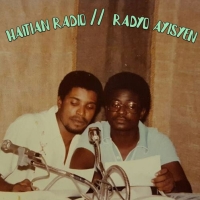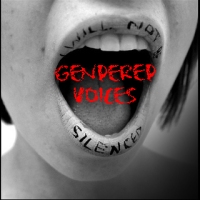From Spanish to English to Spanish: How Shakira’s VMA Performance Showcases the New Moment in Latin Music “Crossover”

***This post is co-written by Petra Rivera-Rideau and Vanessa Díaz
On the night of September 12, Colombian pop star Shakira made history as the first predominantly Spanish-language artist to be honored as MTV’s Video Vanguard at the Video Music Awards (VMAs). The award recognizes artists who have had a major and innovative impact on music videos and popular music. Shakira played a 10-minute medley of Spanish and English hits from her three-decades long career. Her performance demonstrated her breadth as an artist as she shifted from pop to rock to reggaetón.
Not only did she demonstrate her impressive musical range, but of her 69 singles, Shakira selected those that represent two significant crossover moments for Latin music. She sang hits like “Wherever, Whenever,” “Hips Don’t Lie,” and “She Wolf” from her English-language crossover in the early 2000s as part of the so-called “Latin Boom.” She sang 2001’s “Objection (Tango)” with the same samba/rock music arrangement she used at her very first VMA performance in 2002.
During this “Latin Boom” of the late 1990s and early 2000s, Shakira and other established Latin stars who had previously performed in Spanish, such as Ricky Martin, Marc Anthony, and the late Selena Quintanilla, dominated the charts with English-language albums. Despite their successful global careers in the Latin market—and the long history and influence of Latinx musicians in U.S. pop music–U.S. media consistently portrayed these artists as exotic newcomers to the scene, praised more for being “Latin lovers” than established musicians. The Latin boom stars were valued as spicy foreigners there to expose Americans to new, exotic Latin sounds – conga beats, flamenco-style guitar riffs, and festive horns – even as many of these songs draw from familiar rock/pop references. Draco Rosa, one Ricky Martin’s co-writers, remembers “channeling [Jim] Morrison” and “elements of big band … a little bit of surf guitar” in the 1999 smash “Livin’ La Vida Loca.”

Despite the Latin Boom’s English-language crossovers, the images and sounds associated with the moment underscored the artists’ foreignness, something that continues today. This year’s Grammys’ botched treatment of superstar Bad Bunny’s performance and acceptance speech, in which, in lieu of translations, the subtitles merely declared that his words were “non-English.” Spanish has long been used to signify Latinxs’ alleged foreignness and inability to assimilate into US life and culture despite the fact that Latinx communities have been part of the fabric of the US for centuries. In the context of increased anti-immigrant sentiment, the popularity of Spanish-speaking artists like Bad Bunny and Shakira takes on even greater significance.
Following the Grammy’s disastrous handling of Bad Bunny’s performance and speech, backlash ensued. A plethora of popular memes and even t-shirts proudly claiming non-English popped up almost overnight. New York Times’ critic and Princeton professor Yarimar Bonilla proclaimed that “Bad Bunny is [Winning in Non-English].” Celebrities from comedian Cristela Alonzo to rapper 50 Cent admonished CBS. Even California Congressman Robert Garcia sent a letter directly to the CBS president and CEO George Cheeks, writing that the incident “display[ed] a lack of sensitivity and foresight. For too many Spanish-speaking Americans, it felt disrespectful of our place in our shared society, and of our contributions to our shared culture.” CBS eventually released a tepid statement saying that their vendor was not adequately equipped to manage Benito’s Spanish-language speech and performance, and Cheeks took “full responsibility” for the incident. Overall, the Grammys snafu reflects the ways in which the American mainstream still is incapable of embracing the status of Latin artists as equal players in the US and global music markets, in any language.
Compared to this year’s Grammys, however, MTV’s VMAs offered a much more inclusive approach, with a historic perspective that demonstrated exactly how we were able to arrive at this new moment in Latin music. When Puerto Rican and Cuban American rapper Fat Joe and Mexican pop star Thalia presented the award for Best Latin video, Thalia reminded the audience that “in the 2000s’ first Latin explosion, we had a song together, and now we’re here celebrating again this new Latin explosion.” This new Latin explosion refers to the numerous Spanish-language artists like Shakira, Bad Bunny, Karol G, and Peso Pluma who have recently broken out in the US mainstream.
But, unlike the previous Latin Boom, these artists have maintained their Spanish and their musical style. Bad Bunny’s Grammy performance included plena, reggaeton, and merengue rather than the kitschy styles of his Latin Boom predecessors. In addition to selling out stadiums around the country, Karol G drew 15,000 fans, the largest crowd in the Today Show’s history, for her reggaetón performance as part of the program’s Summer Concert Series in Rockefeller Center. Just this past September, Eslabon Armado became the first Mexican regional music group to ever perform on Good Morning America with their chart-topping hit “Ella Baila Sola” (the first Mexican regional song to ever hit number one on Billboard’s Global 200 chart). Whether it is the percussive dembow beat of reggaetón or the syncopated horns of corridos tumbados, all of these musicians have maintained the sounds of their respective genres, foregoing the stereotypical “Latin” sonic signifiers historically associated with Latin music.
Shakira herself reflected this moment in her Video Vanguard performance. She performed her new Spanish-language songs as 2022’s “Te Felicito,” and 2023’s “TQG” and “Bzrp Music Sessions: Volume 53” (the latter having broken four Guinness world records, including the most streamed Latin track in 24 hours). All of these songs have been part of this new Latin music movement. In fact, her “TQG” collaborator Karol G also performed her Spanish hits at the show. Mexican regional phenom Peso Pluma sang “Lady Gaga” on a small stage, surrounded only by his band, and called out “¡arriba México!” at the end. Brazilian artist Anitta performed a multilingual medley from her Funk Generation: A Favela Love Story. In addition, Shakira and Karol G won the award for best collaboration for “TQG.” Not only did the women give their acceptance speech in Spanish, shouting out their home country of Colombia, but they also won in a category otherwise populated by mainstream English-language artists like Doja Cat with Post Malone, and Metro Boomin with The Weeknd, 21 Savage, and Diddy. The interchangeable, tropical Latinidad of the earlier Latin boom was replaced with shout outs to specific countries and regions, and the crowd proudly waved Mexican, Puerto Rican, and Colombian flags. At the VMAs, Latin musicians were not isolated in Latin awards categories or depicted as exotic novelties. They were central to the show – nominated for major awards, and celebrated for some of the night’s most memorable performances.
Much like this year’s Coachella, which featured Bad Bunny and K-Pop sensation Black Pink as headliners, this year’s VMAs reflects a more global approach to pop music. Tuesday night’s award show also featured two performances by K-Pop groups, and MTV offered its first ever award in Best Afrobeats. In this context, it makes sense that Latin music would have a significant presence in the program. But the dominance of Latin music right now makes it so that no part of the music industry can leave Latin music out anymore. Not the VMAs, not the Grammys, not Coachella. As Thalia proudly declared on stage, “this last year for the first time in the US Latin music made a billion dollars in streaming.” Bad Bunny has been the most streamed artist on Spotify for three years in a row, has the longest-running Spanish-language album at the top of the Billboard chart, and in 2022 became the only artist in history to stage two separate $100 million-grossing tours in less than 12 months. Karol G became the first woman to have a Spanish-language debut at number one, and came to the VMAs after a string of historic performances at her Mañana Será Bonito stadium tour. Latin music’s global appeal is undeniable and the industry has to respond accordingly.
This is among the most important times in history for Latin music, and honoring artists like Shakira center stage at the VMAs helps underscore the musical evolution we are lucky enough to witness. Twenty years ago, Shakira had to crossover into the US market in English; now she performs in her native Spanish and is more relevant than ever. The global success of stars like Peso Pluma, Karol G, and Bad Bunny means we need to completely reevaluate the concept of the crossover. Latin artists today did not crossover, the market crossed over into them. They are not compromising their language, their identity, or their culture. They do not have to kowtow to industry expectations that they perform the exotic, sexy Latin other. So while the VMA Vanguard Award winner Shakira may have had to crossover into English to make it during the ‘90s Latin boom, she can proudly return to her roots and, this time, the market will follow her.
—
Featured Image: Screen shot by SO! from Shakira’s MTV 2023 Video Vanguard acceptance speech
—
Petra Rivera-Rideau is Associate Professor of American Studies at Wellesley College, and the author of Remixing Reggaetón: The Cultural Politics of Race in Puerto Rico and the forthcoming book Fun, Fitness, Fiesta: Selling Latinx Culture in Zumba Fitness. Vanessa Díaz is Associate Professor of Chicana/o and Latina/o Studies at Loyola Marymount University, and the author of Manufacturing Celebrity: Latino Paparazzi and Women Reporters in Hollywood. Díaz and Rivera-Rideau are the co-creators of the Bad Bunny Syllabus.
—

REWIND!…If you liked this post, you may also dig:
Ronca Realness: Voices that Sound the Sucia Body—Cloe Gentile Reyes
Contra La Pared: Reggaetón and Dissonance in Naarm, Melbourne—Lucreccia Quintanilla
Unapologetic Paisa Chingona-ness: Listening to Fans’ Sonic Identities–Yessica Garcia Hernandez
SO! Podcast #74: Bonus Track for Spanish Rap & Sound Studies Forum
Listening (Loudly) to Spanish-Language Radio– D. Inés Casillas
Contemporary Television’s Construction of Sonic New Jersey

At the start of The Soprano’s sixth season, in the wake of being accidentally shot by his dementia-suffering uncle, New Jersey mob boss Tony Soprano enters a coma-induced dreamstate in which he reimagines his life as a successful precision optics salesman. A show interested in Freudian psychology, The Sopranos is full of dream sequences, but this one stands out as the longest and most frustrating, as first-time viewers must watch as the hour-long plotline follows Tony’s convoluted dream while his family waits in agony at his hospital bedside. Within the dream sequence, Tony awakens to find himself at a sales conference, where he has mistakenly taken someone else’s briefcase, and he attempts to find its rightful owner. Despite the frustrating circumstances, Tony has lost his tough, mob boss demeanor: instead, he’s professional, polite, and patient, qualities that the former Tony rarely exhibits throughout the show’s six seasons.
But what immediately strikes me about this dream sequence is the sudden loss of Tony’s thick Jersey accent. Gone is the fast-paced speech filled with dropped ‘r’s’ and long ‘a’s’ and ‘o’s’. Instead, Tony’s way of speaking is relatively accentless, aligning with what is considered a neutral North American accent. By dreaming of himself as an upwardly mobile, white-collar worker, Tony has not only imagined a new career, he’s also imagined a new way of speaking, one that lacks any clear markers of region, class, or ethnicity. This transformation ultimately tethers Tony’s New Jersey accent to his identity as an Italian American mobster with working-class roots, and it reinforces the idea that speech is indicative of one’s class. The dream sequence is one instance in which television constructs the New Jersey accent as signifying a certain brand of whiteness—not quite white trash, but perhaps one step above it, a form of whiteness lacking sophistication, riddled with ignorance and superficial wealth.
Here I examine contemporary television’s construction and performance of the Jersey accent in order to understand what it confers about class status and ethnic identity. As others have argued, New Jersey dialects are actually quite eclectic, though contemporary television tends to represent the state’s accent as defined by long vowels and quick, poorly articulated speech:
I’m interested in how television shows such as The Sopranos, Jersey Shore, and Real Housewives of New Jersey, among others, construct the Jersey accent as a homogenous indicator of ethnicity and social class. Within these predominantly white shows, the Jersey accent is associated with whiteness, situating characters at a distance from dialects susceptible to scrutiny and violence, such as nonwhite immigrant accents or who embody what Nina Sun Eidsheim calls sonic blackness, but it also signifies that these characters do not come from respectable backgrounds or generational wealth.
New Jersey has served as a popular setting for contemporary television, and reality television in particular has capitalized on the state’s materialistic and ostentatious reputation. As Alisha Gaines argues, reality television has a “full-blown crush” on the state, as its geography serves as “a stage for class and social passing, a late capital playground of ethnic representation.” MTV’s Jersey Shore is the most well-known reality TV show to emerge out of New Jersey. Although only a few of the show’s main characters originate from the state, they all embrace a stereotypical Jersey aesthetic: the big hair, the tanned bodies, and yes, the accent. Like The Sopranos, Jersey Shore’s Italian American characters claim to have a complicated relationship to whiteness. The characters attempt to reclaim the derogatory term “guido” (or “guidette,” in the case of the show’s female characters) and admit to not fully identifying as white: “I’m not white,” the show’s Nicole Polizzi (Snooki) says at one point. “I’m tan. That’s what I am.”
In Episode 7 of the show’s first season, Snooki meets Keith, a man she’s surprised to have hit it off with not only because he’s not Italian, but also because “he talks like a cowboy.” Yet Keith does not have a Southern accent, as one might expect, but instead speaks in a standard North American accent. Snooki’s assertion that he speaks “like a cowboy,” then, points to not only how accents are perceived (in the eye of the beholder), it also centers and normalizes the characters’ Jersey accents and calls into question how American television audiences have been trained to experience and think about accented subjects.
Predictably, within New Jersey shows, accents and “improper” ways of speaking often become the butt of the joke. For instance, in The Sopranos episode “Cold Stones,” Tony gifts his wife Carmela a Louis Vuitton wallet containing thirty grand in cash. “This is the real Louis Vee-toon,” he assures her, butchering the pronunciation of the French designer’s name. Tony may be able to afford the “real thing” (and then some), but his inability to sonically perform it gives him away: this is not a lifestyle he inherited or was born into; it does not come natural to him.
In a similar vein, Bravo produces blooper reels of the New Jersey Real Housewives mispronouncing common words (skooers instead of skewers, lopter instead of lobster, bought instead of brought, for instance).
Here, these characters’ mispronunciations are intended to indicate their ignorance and lack of education, echoing the show’s hints that their female characters have mob affiliations and primarily live off their husbands’ money. Within the Real Housewives of New Jersey and other Jersey-based shows, commenting on the state’s accent often functions as a way of implying that their characters are not to be taken too seriously, thereby influencing how audiences perceive this way of speaking beyond these shows (see, for instance, this Reddit thread).
As it pertains to whiteness and class, the privilege that the Jersey accent does or does not confer is difficult to unpack. Scholars such as Jennifer Stoever and Shilpa Davé have shown how nonwhite accents are subject to surveillance and violence in ways that white accents are not. Similarly, Christie Zwahlen argues in her Sounding Out! post “Look Who’s Talking, Y’all” that “In contradistinction to ‘foreign’ sounding accents, Southern accents are a classic symbol of American cultural belonging, like apple pie for the ears.” But what version of whiteness, and more specifically, Americannes, does the Jersey accent connote? While within the shows examined here, the accent is spoken primarily by characters belonging to immigrant groups that have been encompassed within the category of whiteness (often Italian and Jewish Americans), the legitimacy of these characters’ social class and education level is often under scrutiny. These characters’ interest in flashy outfits, gold jewelry, and French Chateau style decor (you know it when you see it) is represented as trashy and artificial, a performance of wealth rather than the actual embodiment of it.
In many ways, the “improperness” of the Jersey accent becomes another way of indicating that these characters are not highly educated and therefore their words, thoughts, and even their wealth, are deserving of suspicion. And a show like The Sopranos, in which most characters have organized crime affiliations, confirms that this suspicion is well-warranted. Indeed, this is not the whiteness or social status assumed to accompany standard English or American accents.
Unsurprisingly, these shows’ centering of middle-class whiteness and its sonic registers ignores the disparity that exists across New Jersey’s geographies. While the state is one of the nation’s wealthiest, it’s also home to poorer cities of color that continue to suffer from the effects of suburbanization and neoliberal urban development. For example, scholars such as Kevin Mumford and Ana Y. Ramos-Zayas show how a city like Newark (a frequent setting on The Sopranos) has been heavily shaped by inequitable and volatile racial politics. And yet, the shows examined here eschew these socioeconomic and racial differences, erasing New Jersey’s communities of color from the state’s cultural discourses.
In an episode of HBO’s Boardwalk Empire, set in Atlantic City during Prohibition, Irish immigrant Margaret Schroeder expresses her fear that her Irish accent makes her “sound like an immigrant,” to which city treasurer Nucky Thompson responds, “But we’re all immigrants, are we not?” While his response echoes the assimilationist myth of the U.S.-as-melting-pot, it hits on something precise about New Jersey: as the state with the third-largest immigrant population, the homogeneity of the region’s accent is largely a construct. While contemporary television presents audiences with an all-encompassing Jersey accent, in actuality, the state’s diversity makes it nearly impossible to pin down exactly what New Jersey “sounds like.” Examining New Jersey’s representations in popular television reveals how the accent has become one of the state’s most prominent and recognizable features, and shows how these representations have the potential to reductively categorize an entire population.
—
Featured image: “Memorial Day Weekend” by Flickr user SurFeRGiRL30, CC-BY-2.0
—
Shannon Mooney is a PhD student in English and American Studies at the University of Massachusetts Amherst. She received her M.A. in English from the University of Connecticut in 2018. Shannon studies contemporary multi-ethnic U.S. literature, television, and film, with a focus on cultural geography and critical race theory. Her work examines how multi-ethnic writers and artists from New Jersey engage with the state’s natural and industrial landscapes to make sense of their positions as political and historical subjects. Shannon is also the Creative Director of Paperbark Literary Magazine, a publication rooted in sustainability and environmental justice.
—
 REWIND! . . .If you liked this post, you may also dig:
REWIND! . . .If you liked this post, you may also dig:
Teach Me How to Dougie Like A Mediocre White Man-Justin Burton
Speaking American-Leslie McMurtry
Vocal Gender and the Gendered Soundscape: At the Intersection of Gender Studies and Sound Studies — Christine Ehrick





















Recent Comments